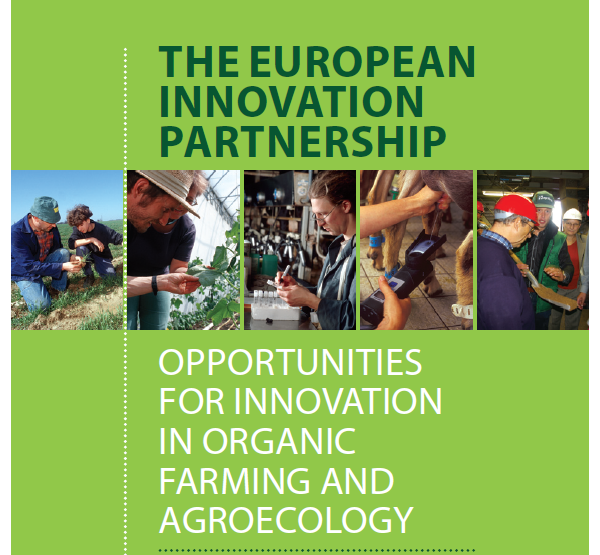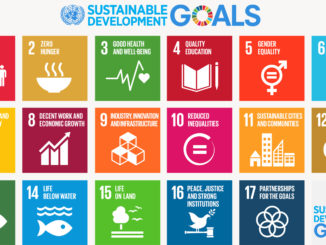
NEW:
September 8th European Organic Congress “Implementing Innovative Ecological Solutions for Farmers and Rural Communities”
A European Innovation Partnership (EIP) dossier has been developed by ARC2020.eu and partners TP Organics and IFOAM EU. As the CAP Rural Development Plans get finalised around Europe, this will prove to be an invaluable tool for organic and other agroecological approaches to agri-food.
In particular the dossier, called The European Innovation Partnership – opportunities for innovation in organic farming and agroecology, should prove useful for the certified organic sector, which could loose out to other more ‘greenwash’ generic approaches to agri-food, without significant effort and indeed tools such as this.
As ARC2020 has reported previously, “the Rural Development regulation specifies that EIP shall promote a transition towards “agroecological production systems.” The EIP is meant to be a bottom-up process. Organic associations have an opportunity, based on what is actually in the regulation, to convince their national or regional authorities to implement the EIP for the benefit of organic farming and agroecology.”
EIP has also been developed through a long process and numerous stages of development, including the EU Commission’s 3rd SCAR foresight exercise.
This new Dossier shows how the EIP is already being used or considered in a number of regions across the countries of the EU. These include Flanders (Belgium), Lower Saxony (Germany) Brittany (France) Tuscany (Italy) as well as in Estonia and Poland. Operational groups with budgets are already forming, and beginning to overcome barriers to both de-industrialising agri-food and barriers to the further development of organic farming.
Dacian Ciolos (EU Commissioner for Agriculture and Rural Development) in his introduction to the dossier says “”the organic sector is in many ways an agricultural frontrunner. Organic farming is a sector from which all farmers can learn, but it is certainly also in need of innovation and development. With funding coming on tap in 2014 for operational groups under Rural Development and for multi-actor projects and thematic networks under Horizon 2020, I hope that the organic sector will continue its strong involvement in the EIP-AGRI and help make it a success. “
Lead author Bram Moeskops (Scientific Coordinator TP Organics) added “the rural development regulation requires the EIP-AGRI to promote a resilient agricultural sector working towards agroecological production systems. This relates to two of the regulation’s priorities – namely “restoring and preserving ecosystems” and “promoting resource efficiency and supporting the shift towards a low carbon economy”. The regulation lists organic farming and the establishment of agroforestry systems as measures that contribute to these two priorities. These factors therefore make the EIP-AGRI, with its operational groups, a key instrument for promoting organic farming and other agroecological approaches.”
Supports for Operational Groups are emphasised in the Rural Development section of the dossier:
“The rural development regulation includes support for the brokerage needed to create the operational groups and to prepare project proposals. Funds will also be available to cover the organisational and direct costs of the project itself. Investments in physical assets as part of the EIP-AGRI and involving an operational group will benefit from increased support. In particular, the EU promotes investments that contribute to environmental or climate change objectives, which includes organic farming.”
Further Reading:
EU Level supports already in place including the Focus Group on Organic Farming and the EIP-AGRI Service Point .
For EIP in Ireland’s Rural Development consultation see here.
For NOBL (Network for Organic Food and Farming Research) which is implementing EIP in Flanders see here.
For DevAB (joint technical network on organic farming, Brittany) (France) see here
For the Competence Network of Lower Saxony (Germany) see here
For Learning and Innovation network Tuscany (Italy) see here
For the dossier itself, click on The European Innovation Partnership – opportunities for innovation in organic farming and agroecology.




